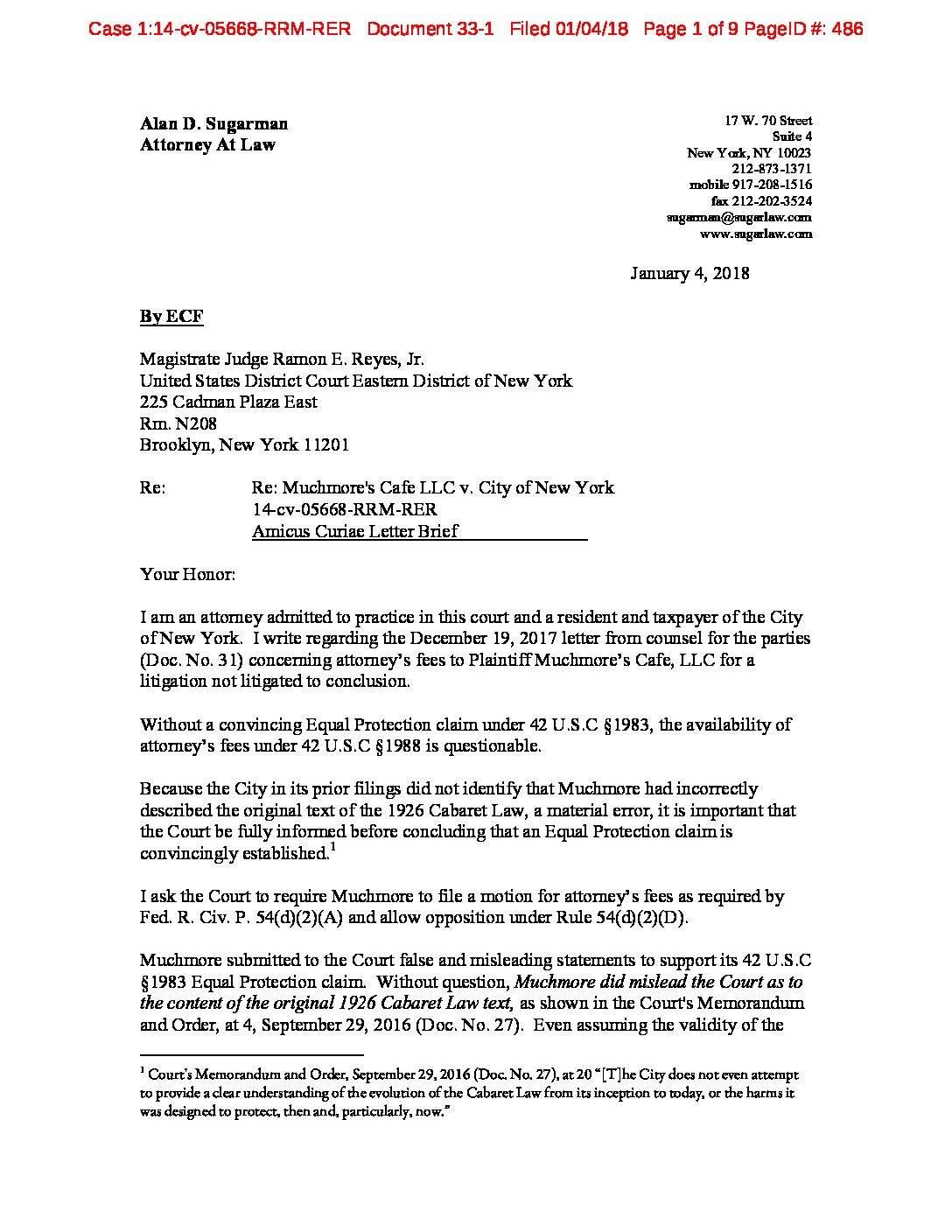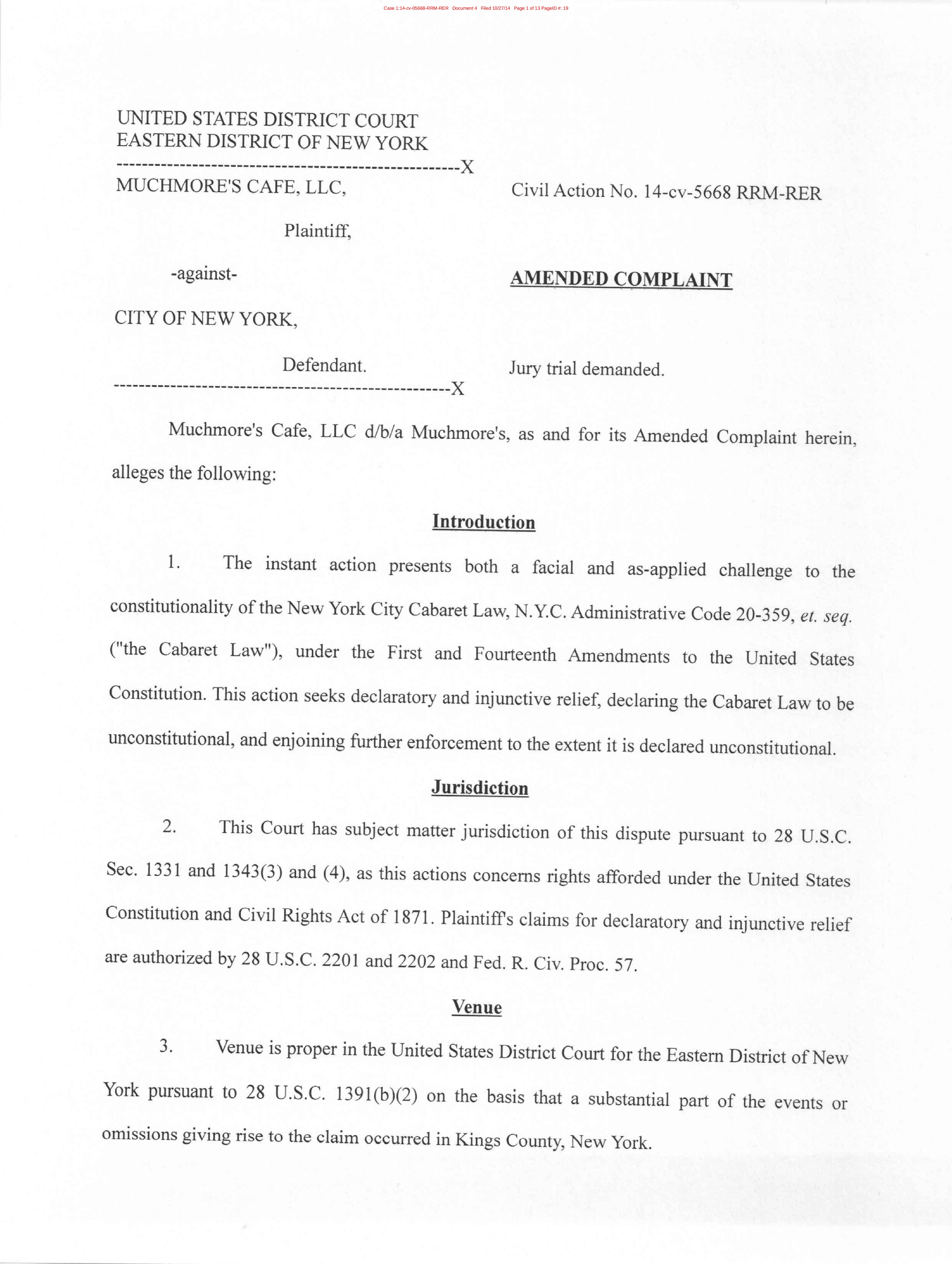Letter Motion to Intervene as Amicus Curiae,
Document Category: Three Musician Limit
Muchmore Amended Complaint
Muchmore’s Amended Complaint – falsely represented that the thee musician and type of instrument limitations were in the original Cabaret Law.
Festa v. New York City Department of Consumer Affairs -Supreme Court and Appellate Division
in 2004, John Festa and other social dance teachers challenged the constitutionality of the zoning resolution restrictions against dancing, winning in the trial court (Supreme Court), but reversed on appeal “Recreational dancing is not a form of expression protected by the federal or state constitution ” Litigation brought by Paul Chevigny.
The Cabaret Law did not target black venues when allegedly not allowing jazz instruments in non-licensed establishments.
When challenged, those having a belief that the Cabaret Law was racist justify their belief by claiming that the Cabaret Law allowed classical music instruments playing in non-licensed establishment, and prohibited typical jazz instruments thereby targeting black establishments. There are several problems with this claim: those provisions were placed in the Cabaret Law in 1961 as a way to liberalize the law allowing some live musical performance. This belief ignored the large number of non-black musicians playing jazz during the Jazz Age and the Flapper era. The second reason oft cited for this belief in the language to the introduction of the 1926 bill.


